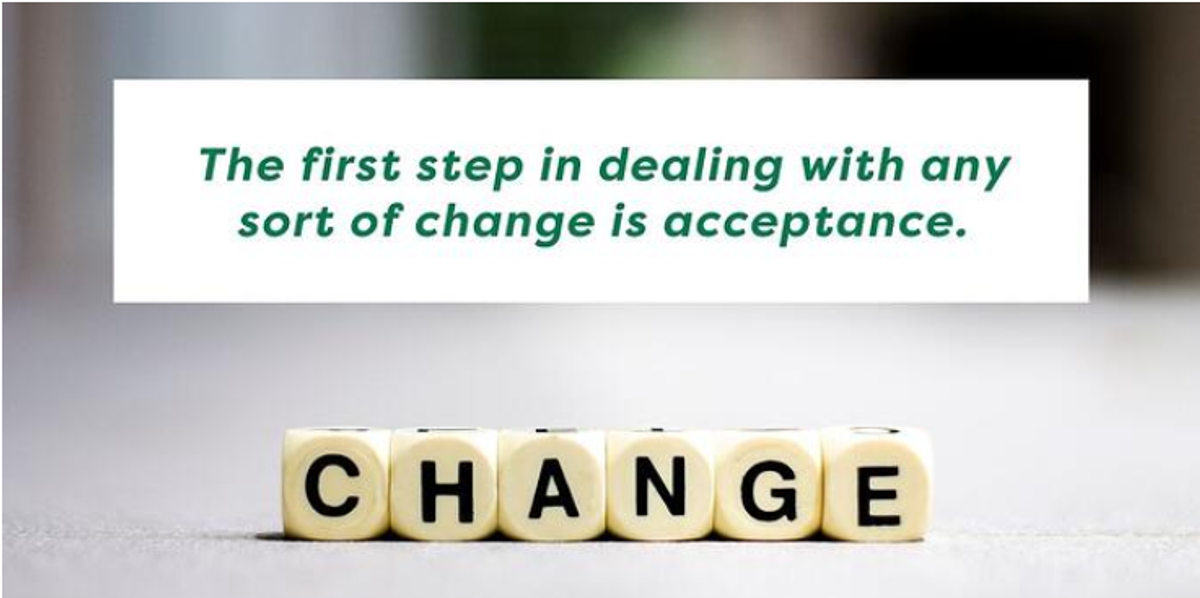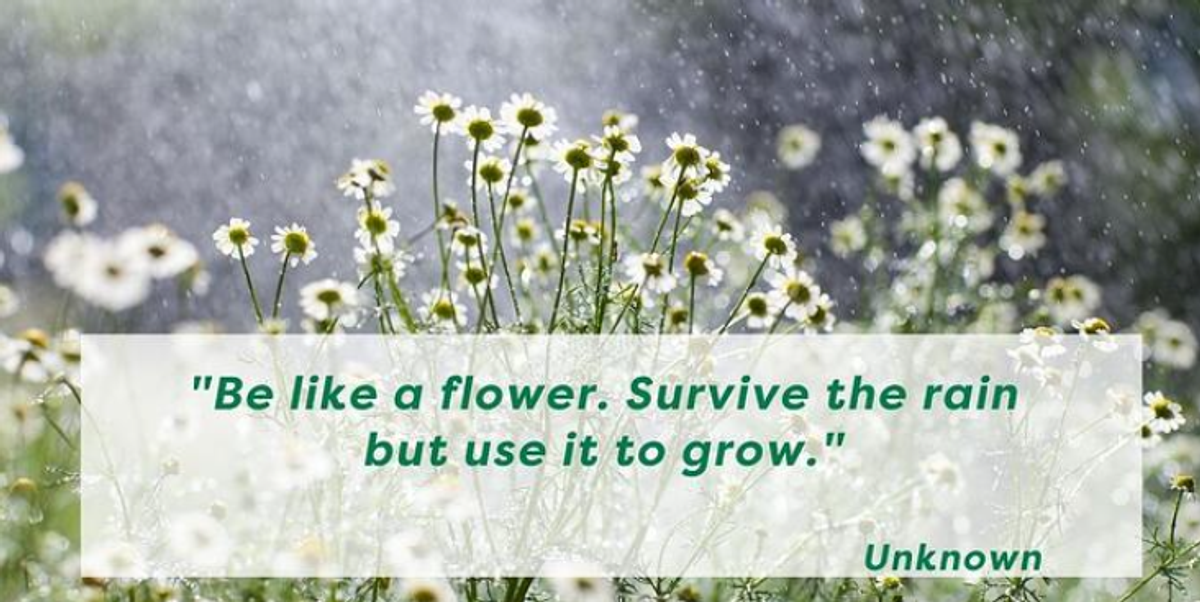Thought For The Week:

Navigating change: your values are the compass
Change is a constant in our lives these days – big or small, most of us are experiencing some form of change. Change affects all of us and we each deal with it differently. Some people thrive in a changing and new environment, while others don’t. Why is that?
There are a plethora of reasons why we respond to change differently. Regardless of the reason, the first step in dealing with any sort of change is acceptance.
We don't have to like it, agree with it or want it, but we can accept that it is our current reality.
Instead of expending precious time and energy resisting the reality of change, we can more effectively channel those resources into an empowering and helpful response. If you can learn to more effectively cope with change, you’ll lower your risk for anxiety and depression.
OUR VALUES INFLUENCE HOW WE HANDLE CHANGE
It's easy to fixate on things over which we have no control. Rather than focusing on what you can't control or blaming others, set your sights on what you can control. To evaluate your level of control in a situation, ask yourself, “What can I take responsibility for in this situation"?
When you look for opportunities to empower yourself and work toward change that is possible, you’re less likely to feel stuck in difficult situations.
A key reason we respond the way we do to any change comes from our own unique set of personal values - those things in life that are most important to us.
Our values differ from person to person based on our unique upbringing, beliefs and experiences in life. When we experience value fulfilment in what we do, we are more likely to feel happy and maintain a sense of enjoyment, engagement and overall wellbeing.
When our values are not being fulfilled or are actively being compromised by what is going on, our ability to maintain this sense of wellbeing is more challenging. Any change has the potential to either help fulfil or compromise some of our values.
KNOW YOUR VALUES
Transitions in life allow you to consider where your priorities and values lie. How do you really want to spend your time on earth? What’s really important to you? Where do you see yourself wasting your time and energy?
With a clear sense of your goals and values, you will find your mind and body can be much more resilient when it comes to the stressors of change.
If you are someone who values control, think about times you have successfully navigated change. What helped then? Focus on the things that are within your control and implement strategies to stay present.
It's easy for our minds to get carried away thinking about the future and all the possible scenarios. There is a time and place to mentally run through your options and the possibilities, just be careful it doesn't turn into an endless loop of rumination. Strategic thinking is different from ruminating.
To bring yourself back to the present, get in tune with your body. Pay attention to how it responds to stress, and set aside time every day to relax, take some deep breaths, and bring your focus back to the present. This is a simple practice you have control over.
Take some time to identify how you're feeling and what you need. Once you know what you need, be willing to ask for help. Asking for help is also something you have control over. You don't have control over how someone else responds to your request, but you can initiate and reach out.
HOW TO IDENTIFY YOUR PERSONAL VALUES
Everything we do meets a need or value of some sort. Once we know why we are responding the way we are, we can start to identify useful strategies to navigate the situation.



